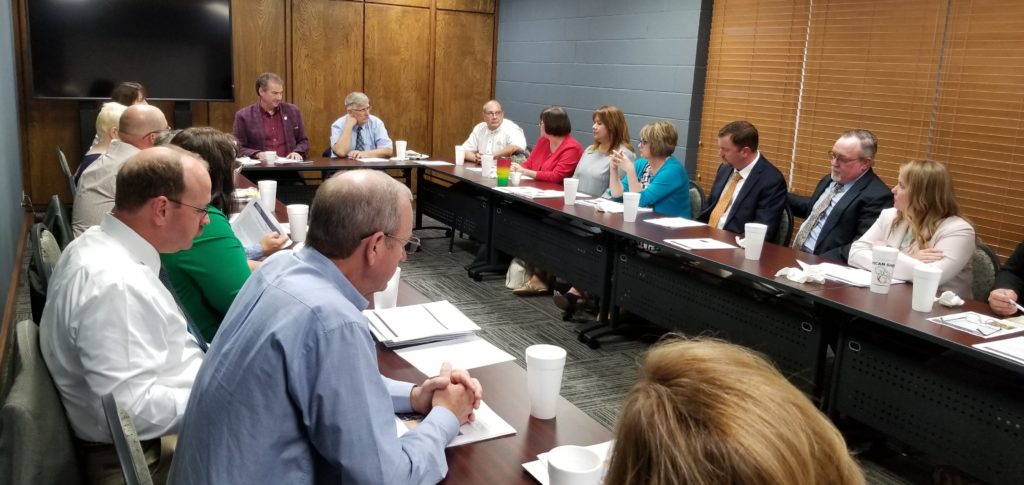Texas A&M to bridge rural/urban divide with food, agriculture science
Vice Chancellor Stover takes his message to Vernon, Stephenville
Writers: Kay Ledbetter, 806-677-5608, [email protected]
Adam Russell, 903-834-6191, [email protected]

COLLEGE STATION – About a thousand new faces show up in Texas every day, moving into the Metroplex, Austin, San Antonio and Houston, and they have little to no connection to the state’s agriculture-based culture and economy.
Dr. Patrick Stover, Texas A&M AgriLife vice chancellor, dean of the College of Agriculture and Life Sciences and director of Texas A&M AgriLife Research in College Station, explained his plan to change that information gap during recent visits to Vernon and Stephenville.
Stover, a little more than a year into the job, sat down with Texas A&M AgriLife faculty and staff at both locations, as well as community leaders and producers, to discuss future opportunities to continue to bridge the gap between urban and rural populations.
“It is important, as Texas becomes more urbanized, that we maintain the strong agriculture presence throughout the state for the good of our economy as well as the good of our rural and urban communities that need good, wholesome food to keep people healthy,” he said.
Stover said Texas A&M AgriLife has the unique opportunity to create a national model to bridge that divide to make sure everyone appreciates the role food plays in their daily lives – in their health, security and well-being.
“We’re creating a place that can increase the profitability of agriculture and eliminate the doubts that surround the food system,” he said. “We want to build consumer acceptance and bring in more science to how we produce food in a way that brings the two together.”
Stover said in order to better align the two, the advocacy and mythology that surrounds the food chain must be replaced with sound science. Texas A&M, as the land-grant institution for the state of Texas, has a mission to do that.
“Efforts are being made now to ensure Texas A&M becomes the place that Texans can get truthful, unbiased, rigorous information on any question anyone may have concerning production agriculture or consumption,” Stover said.
A scientific evidence center that will be an authoritative source of trustworthy information is being designed to reach consumers and policymakers who need to know about agriculture and the important role it plays in their lives, he said.
“This will be a world-class international consortium where people are looking at the food supply and the connection between food and health. We’re going to be the go-to place and become more of a voice for science.”
Stover’s tour throughout the state also gives him an opportunity to hear firsthand from producers about the programs and research Texas A&M AgriLife offers.
“Those producers are quite frank with us and tell us the areas where we can do better,” he said. “It is our mission to serve those producers and make sure they have the tools and technology and information they need. Having this dialogue with them helps us make sure we are meeting our mission.”


